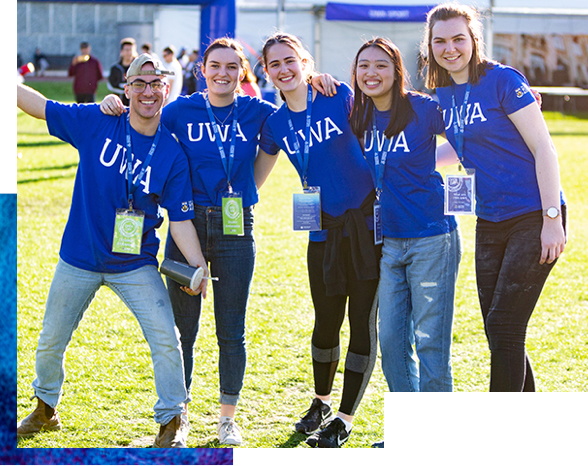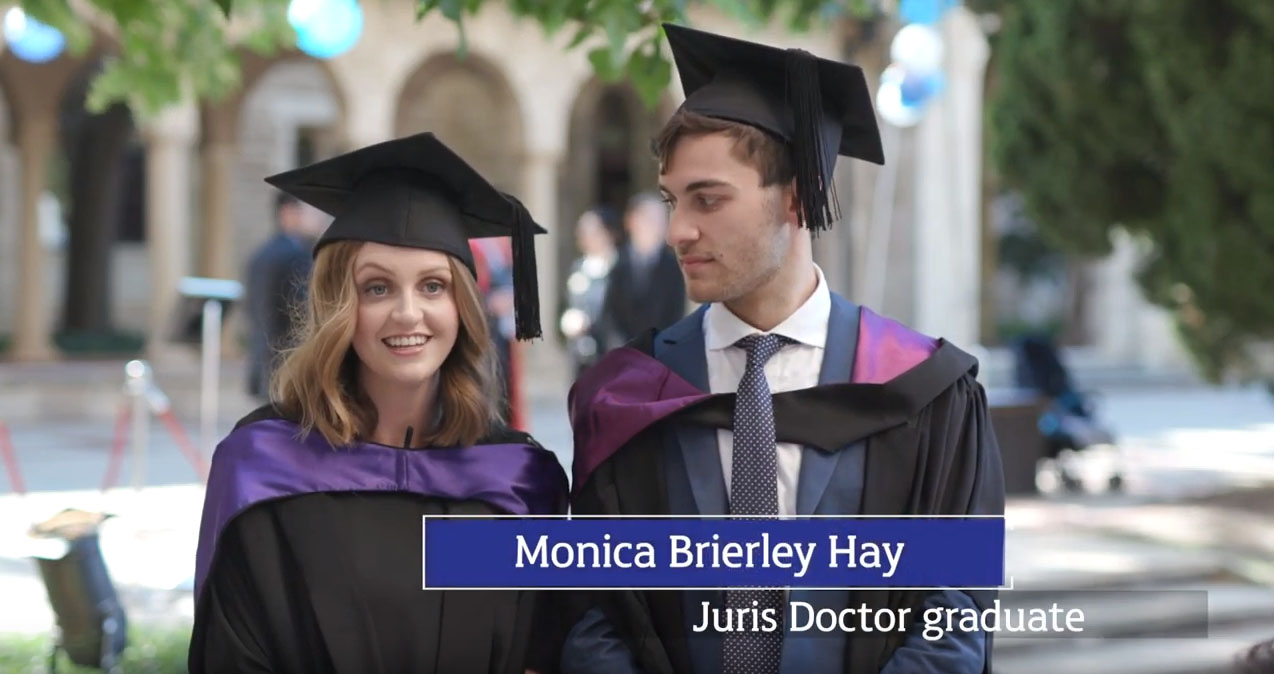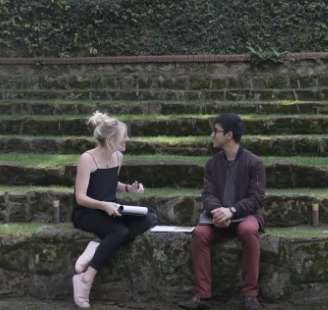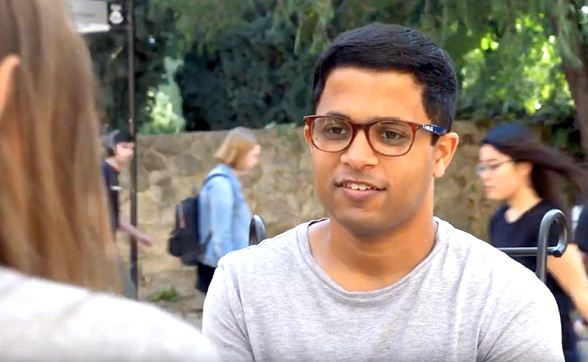Postgraduate
Master of International Law
Contact us
Address
Student Central
The University of Western Australia (M355), 35 Stirling Highway, Perth, Western Australia 6009
Telephone
131 UWA (131 892)
International
(+61 8) 6488 1000
Hours
Frequently asked questions
Events you may be interested in
Show more eventsCareers and further study
Explore the career opportunities available to you.
Career Pathways
Further Study
Fees and scholarships
Learn more about the fees that apply to you for this course.
Domestic Student Fees
For Commonwealth-supported places, student contribution amounts are charged by unit, based on area of study. For a fee estimate, go to the Fee Calculator and select “I want to price my units”. Fees are subject to annual indexation. Refer to the Handbook to identify the units required. More information on how fees are calculated.
Scholarships
Scholarships are available to students from a diverse range of backgrounds, including academic achievement, financial need, educational disadvantage, leadership and community service, artistic or sporting achievements, and being from a rural or remote area.
Cost of living
International Student Fees
Onshore international students are charged an annual course fee, charged per credit point at a rate dependent on the course in which the student is enrolled. Annual course fees are calculated based on an annual study load. Check the handbook to confirm the annual study load for your course.
Find out more about international student tuition fees and visit the fee calculator for the relevant course fees.
Fees are subject to annual indexation.
Scholarships
Scholarships are available to students from a diverse range of backgrounds, including academic achievement, financial need, educational disadvantage, leadership and community service, artistic or sporting achievements, and being from a rural or remote area.
Cost of living
Admission requirements
If you’re interested in furthering your career by studying this postgraduate course, find out the admission details below
Admission Requirements
Ranking and Selection Process
English competency
English is the language of instruction and assessment at UWA and you will need to meet the English language requirements of the University to be eligible for a place.
This course has higher ELC requirements. Applicants presenting with the IELTS Academic require an overall score of at least 7.0 and no band less than 6.5. For more information visit ELC requirements.
How to apply

Ready for the next step?
Find out how to apply through our simple online application process.
We'll guide you through our entry requirements, admission pathways available to you and application deadlines for your chosen course.
We can’t wait for you to join us!
Course details
This course is subsidised for Australian residents through Commonwealth Supported Places (CSP). Visit our fee calculator for CSP rates and an estimate on your course fees.
About the course
Quick details
- Available
- Perth (Crawley campus)
- Full-time
- Part-time
- On-campus
- The majority of units are offered intensively throughout the year during the vacation periods and study breaks.
For further information and unit availability visit the Law School web page.
- Variable - includes intensive teaching blocks.
- Postgraduate
- 21520
- 083868E
Flexibility
We understand that life is busy. That's why our postgraduate courses are designed so you can balance your work and studies. Our flexible postgraduate experience includes the opportunity to study part time, a range of units that are taught after hours, and the option to learn via intensive units. Ask our Student Central team for advice on choosing the right postgraduate route for you. Find out more here.
Western Australia's premier Law School
The UWA Law School is ranked in the top 150 law schools in the world for Law and Legal Studies (QS 2025). You will join and contribute to 90 years of excellence: we are the first law school established in WA and the fifth oldest in Australia.
Our graduates include a Prime Minister, a Governor of Western Australia, State Ministers, Justices of the Supreme Court of WA, a Young Australian of the Year, Rhodes Scholars, and more.
While we have a long and proud history, we're also a closely-knit, creative and progressive Law School, fostering critical thought, ethical scholarship and practice, a deep connection to our Indigenous past and present, and supportive student culture based upon wellbeing and inclusion.
Course structure
Postgraduate coursework degrees and combined (coursework and research) degrees comprise a number of units. Refer to the course structure for more information.
3 reasons to study a Master of International Law
2. You'll be exposed to international experts in their fields.
3. You'll develop knowledge and skills marketable locally, nationally and internationally.
You'll learn to
- understand and analyse the complex institutional structure in which international law is created, debated and applied.
- appreciate the impact international law has on people world-wide.
- deepen and refine oral and written analytical and delivery skills.
- command an in-depth knowledge of speciality sub-fields of international law.
Alessandro Silvestri

Alessandro completed his combined Master of International Law and Master of International Relations. We caught up with him to find out about his time at UWA.
"To be honest, my favourite aspect was the calibre and competency of the lecturers and personnel that are involved with this program. I had never encountered people with such talent, passion and knowledge in International Law; lecturers such as Dr Melanie O'Brien and Dr Fiona McGaughey, in particular, instilled in me so much enthusiasm in international law and advancing its various disciplines that motivated me to pursue an academic career."
"Finally, and also very importantly, all people with whom I have had the pleasure of interacting showed me great humanity and understanding. In 2018, I was passing through a tough period of my life, but the support that I have received from UWA and, in particular, the members of the UWA Law School, gave me the strength to complete my degree with distinction. Choose law for the people."
"Building on the above, while I will not deny that the workload necessitates an important level of commitment and work, the opportunity that the UWA Law School offers is unique. You will have the opportunity to deal with some of the best people, both academically and on a human level, that you have ever encountered. It offers you the positive challenge to grow as a thinker and as a person in a nurturing and supportive environment."
"I am sure that everyone has, at some stage in life, wondered how and why we create and then respect the law. Law is the vehicle through which you can make changes happen and make our society a better place to live in. Choose law to be the change."
Explainer: The difference between graduate certificates, graduate diplomas and master's degrees

Graduate certificate versus graduate diploma? Graduate diploma versus master's? Here's how to choose which postgraduate course type is right for you, depending on what your intended goals might be.
Combined master's
In as little as two years, you can complete two master's degrees. Combine this course with the Master of International Relations.





